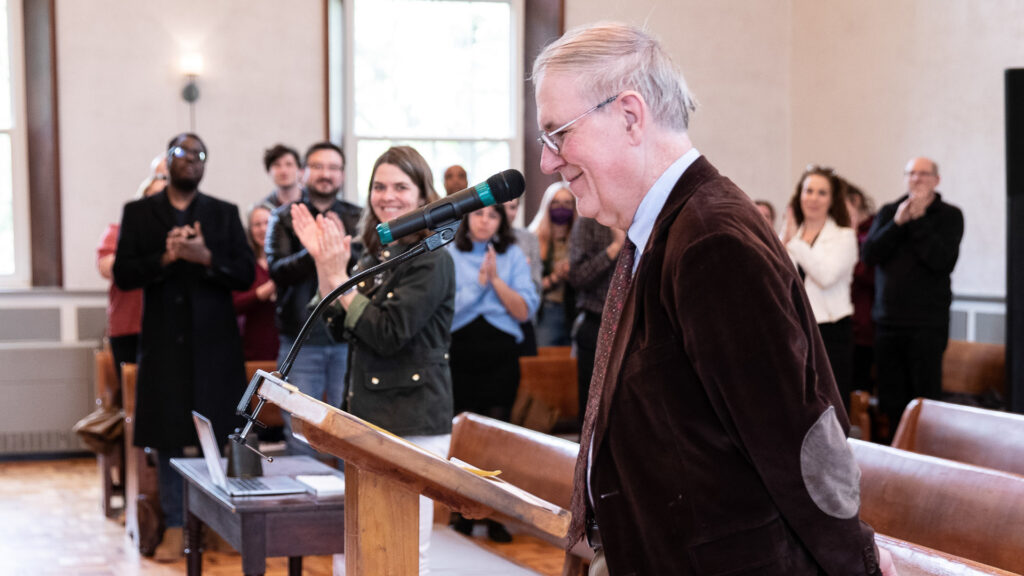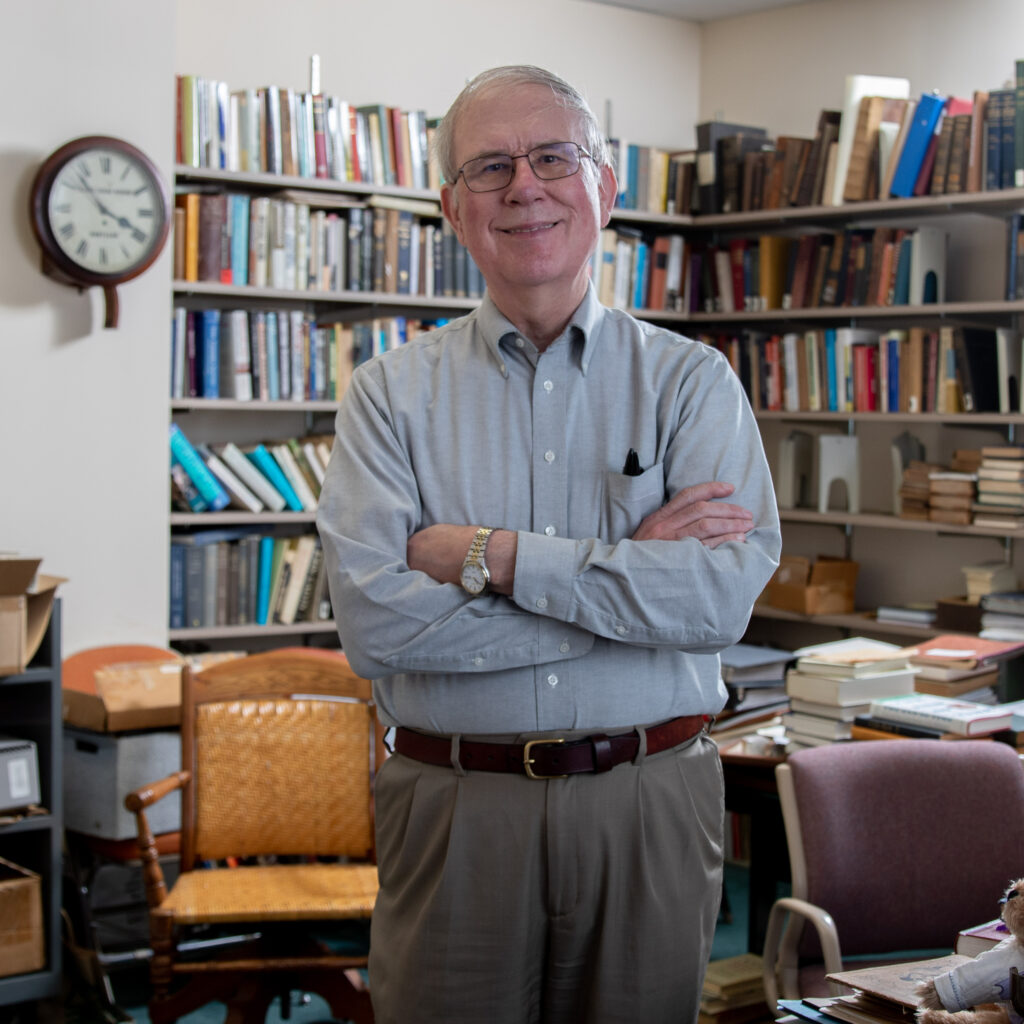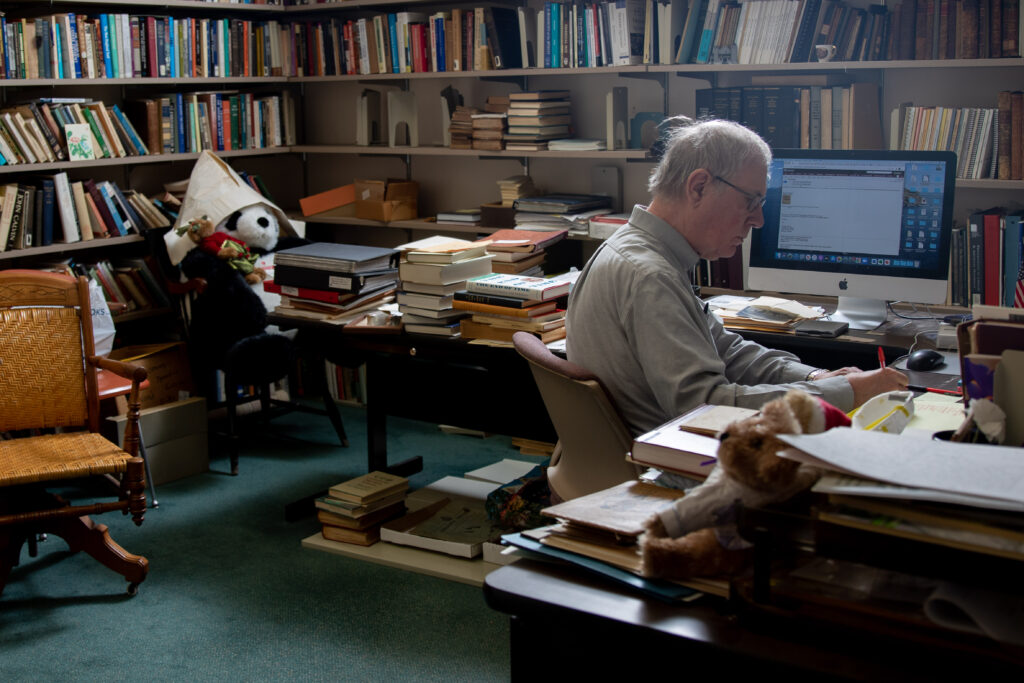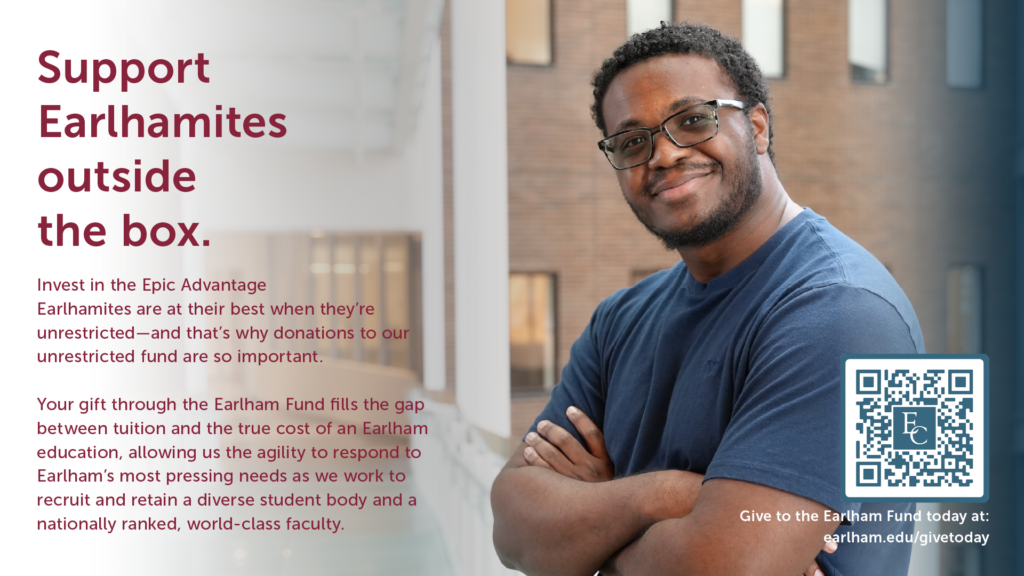
Tom Hamm, one of the world’s foremost experts on Quakerism in the U.S., describes his arrival on Earham’s campus in 1987 as a matter of good timing and, perhaps, good luck.
“As a historian of Quakerism, there are maybe four or five institutions in the United States that would be looking specifically for a Quaker historian,” Hamm said. “I was fortunate that at the time I was looking for a job, Earlham was looking for a historian.”
In a 36-year career, Hamm has become a mainstay on the College’s history faculty as a professor, a longtime archivist and director of the Friends Collection, a two-time clerk of the faculty and recording clerk, and a Quaker scholar-in-residence. He officially retired in the spring of 2023.
“We originally hired Tom because Earlham needed a first-rate archivist, but Tom has turned out to be so much more,” said Len Clark, who hired Hamm when he was provost and academic dean.
“He has preserved Earlham’s history and made it more widely available by publishing wonderful histories of the college,” said Clark, an emeritus professor of philosophy. “Tom’s affection for Earlham and its history is obvious to all. But he has never let himself or others of us ignore the problems we have faced and sometimes created. His understanding and teaching about both Earlham and Quakerism have been clear-eyed, and have been all the more valuable for that objectivity.”
In his celebrated career, Hamm has authored several books, chapters and papers, including two that are largely considered the authority on Earlham’s 175-plus years of history.

He also has the rare distinction of being a two-time clerk of the faculty in 2002-2004 and 2021-2023—only the third two-time clerk in the College’s history—leading faculty through careful discernment of many key decisions at two markedly different times in the College’s history.
During his first term, the main issues before the faculty were approving a new strategic plan, implementing changes in general education, revisiting judicial policies and outsourcing housekeeping. When he returned, most of the discussion surrounded transitions related to the Covid pandemic in addition to proposed changes to the curriculum, which included an expansion of the curriculum to include new majors in engineering and accounting.
“I had already been here for 15 years when I became clerk the first time and had the opportunity to watch past clerks before I took the position,” Hamm said. “I enjoyed being clerk, and I think I was good at it.
“I’m also a lifelong Quaker,” he said. “It helped that I had a lot of experience in Quaker meetings for business, monthly meetings, quarterly meetings, yearly meetings,” he said. “I also had done a lot of research on Quakerism and had read quite a bit about how Quakers should and should not conduct business.”
What’s the secret sauce to be an effective clerk of a Quaker meeting?
“Very careful listening is the first thing,” Hamm notes. “The second thing is accepting that when you’re clerk there has to be a certain degree of vulnerability. You have to be prepared to put forward propositions knowing that people may tell you that you’re wrong and that’s just part of the process.”
“On the other hand,” he added, “careful listening has to be combined with thinking on your feet. You have to take a number of things that people have said, see where there are common currents and then ask yourself if there are different ideas that are fundamental to the discussion or are simply outliers.”
A self-described technophobe, Hamm also reluctantly became one of two clerks in the College’s history to lead faculty meeting using teleconferencing software. It felt like a cruel joke to the 66-year-old, who does not carry a cell phone and referred to his first office computer as an “instrument of the devil.”

“Conducting faculty meetings over Zoom is something I could not have imagined when I came here,” Hamm said. “I can also begrudgingly say it was a lifesaver. I don’t know what we would have done if we weren’t able to carry on during the worst of the pandemic.”
Hamm’s legacy will live on in perpetuity. He and his wife, Mary Louise Reynolds, are making a gift to the College in support of the expansion of the Friends Collection in the College’s archives.
“When that wing of the library was opened in 1992, I estimated that we had space to grow for 15-to-20 years,” he said. “That was 30 years ago. We’re simply at the end of our available storage space. We need to renovate over there to create more space because we could better house things that we already have. There will be new material coming in that we will need space for. We’ve started to look at the possibilities.”
Hamm never considered leaving Earlham — not even in his retirement. He will continue to volunteer at the College’s archives and hold the title Quaker Scholar-in-Residence.
“I’m essentially a cautious person,” Hamm said. “I have been happy here. Why take the chance on giving up on happiness? More than anything else, I just had a feeling that this was where I was meant to be.”
Story written by Brian Zimmerman
